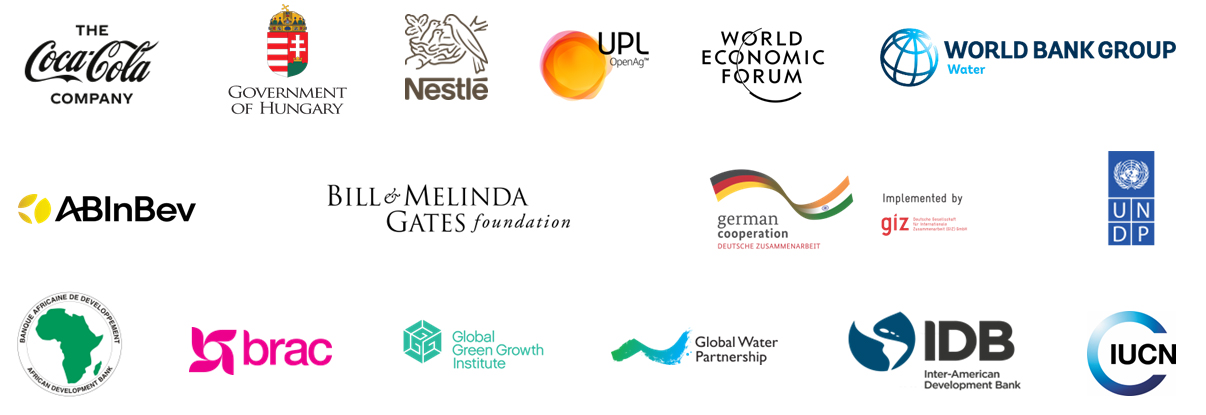
Who we are

We envision a world with enough safe water for people, environment, and economy.
The 2030 Water Resources Group (2030 WRG) is a unique public, private, civil society partnership. It is hosted by the World Bank Group. With more than 1,000 partners around the world, our platforms help to drive systemic change and advance transformative leadership of institutions.
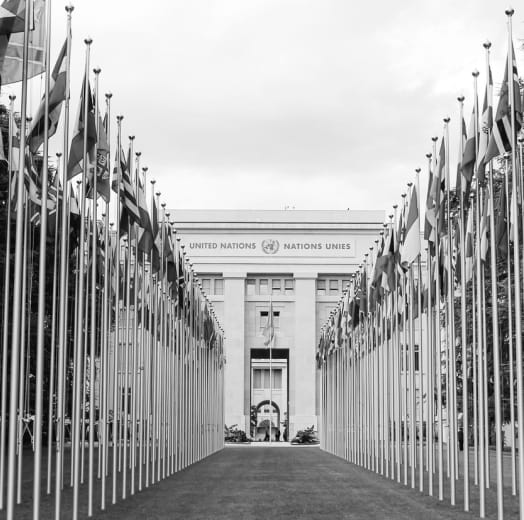
Contributing to the Global Agenda
2030 WRG is committed to contributing to the United Nations Sustainable Development Goals (SDGs). We help countries achieve water security by 2030 (SDG 6) by facilitating collective action on water between government, private sector, and civil society (SDG 17). This commitment is not just to the goals that specifically target water, but also to those that depend on water.
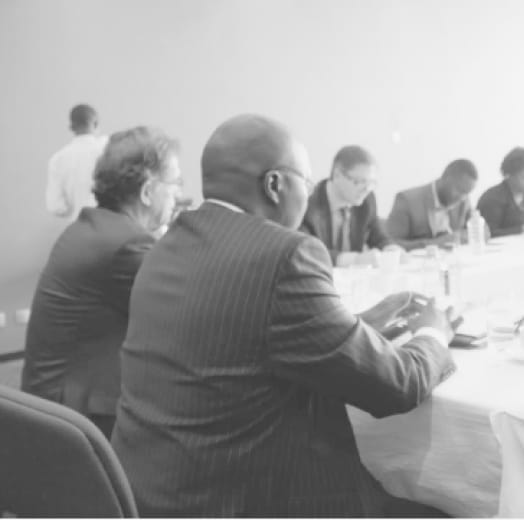
Overall Objectives
We develop innovative solutions to water challenges that are fair, practical, and evidence based – and we mobilize finance to support ground-breaking projects.
Our work is guided by two overarching objectives:
#1
Increase global awareness among decision-makers about the role of water for their people, environment, and economies
#2
Help decision-makers to take action for efficient, productive, and sustainable use of water and to close the gap between supply and demand in their countries
Our History and Future
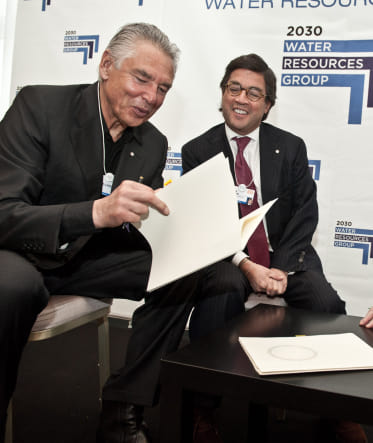
In 2008, recognizing the opportunity to look at water’s fundamental role in the economy, the World Economic Forum joined forces with the International Finance Corporation (IFC), the private sector..
2008
In 2008, recognizing the opportunity to look at water’s fundamental role in the economy, the World Economic Forum joined forces with the International Finance Corporation (IFC), the private sector arm of the World Bank Group, and formed an informal consortium that later became known as the 2030 Water Resources Group (2030 WRG). 2030 WRG then issued a 2009 flagship report, Charting Our Water Future, with its key message that any strategy to achieve water security must be a joint effort by governments, investors, NGOs, and water users in agriculture, industry, and cities. The report and its headline figure – that global demand for water would outstrip supply by 40% by 2030 – brought champions together for the kind of cross-sector conversation and action for which the report called.
2008
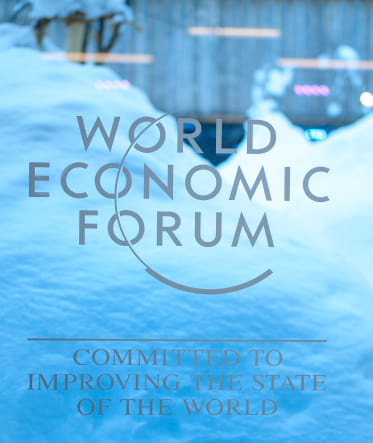
By the end of 2009, 2030 WRG was incubated within the Forum headquarters in Geneva, with its official launch in Davos in January 2010. The initial goal was to..
Incubation
By the end of 2009, 2030 WRG was incubated within the Forum headquarters in Geneva, with its official launch in Davos in January 2010. The initial goal was to demonstrate in three countries how collaboration among public, private, and civil society actors could encourage governments to accelerate the often difficult reforms needed to manage water resources sustainably as a key enabler of long-term development and growth. 2030 WRG’s ACT approach – Analyze, Convene, Transform – emerged in mid-2010 and has been evolving ever since. The Forum facilitated the experimentation process and offered access to senior leaders and the ability to be nimble and flexible, try different things, and see what would work. At the same time, on-the-ground implementation capacity became essential. At the Forum’s annual meeting in Davos in 2012, it was agreed that 2030 WRG would enter a new, more formal phase at the IFC headquarters in Washington, DC in July 2012.
Incubation

When 2030 WRG moved to the IFC, a more formal governance structure was created, composed of its highest governing body, the Governing Council, and..
Demonstration
When 2030 WRG moved to the IFC, a more formal governance structure was created, composed of its highest governing body, the Governing Council, and the Steering Board. During 2030 WRG’s time at the IFC from 2012 to 2017, the group engaged in nine new geographies. In the last few years of this period, 2030 WRG also began to see dialogue turn into action at a much greater rate as stakeholder collaboration in-country matured.
Demonstration
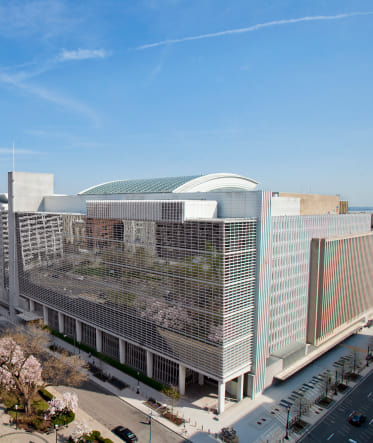
In June 2017, the strategic decision was made to host 2030 WRG in the World Bank Water Global Practice from January 2018. This move reflected 2030 WRG’s journey from being a..
Scaling for transformation
In June 2017, the strategic decision was made to host 2030 WRG in the World Bank Water Global Practice from January 2018. This move reflected 2030 WRG’s journey from being a “positively disruptive” pilot project within the IFC to a different but important public-private-civil society program leveraging the wider World Bank Group’s reach and retaining its innovative multi-stakeholder model. The IFC remains a committed partner to 2030 WRG, helping the private sector engage in strategic dialogues on water resources management.
Scaling for transformation
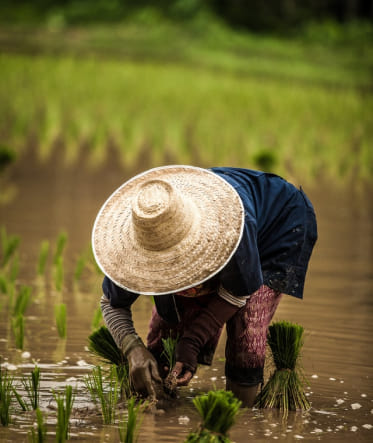
2030 WRG is initiating key country initiatives, ‘Accelerators’, which are high-impact, fast-track engagements to address pressing water challenges. It involves collaboration across the World Bank Group, bringing together various..
Accelerating our approach
2030 WRG is initiating key country initiatives, ‘Accelerators’, which are high-impact, fast-track engagements to address pressing water challenges. It involves collaboration across the World Bank Group, bringing together various World Bank global practices and IFC, and aims at systemic impact. Current accelerators include Bangladesh (water quality improvements), India (transforming rice value chains), Peru (national water security), Kenya (expanding farmer-led irrigation), and the city of Cape Town (hydro-economic analysis and multi-stakeholder platform development).
Accelerating our approach
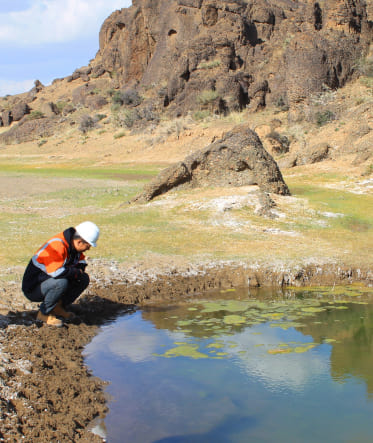
2030 WRG tracks semi-annually key quantitative indicators for each of its country Multi-Stakeholder Platforms (MSPs). This allows for an aggregation of the overall contribution..
Monitoring and Evaluation
2030 WRG tracks semi-annually key quantitative indicators for each of its country Multi-Stakeholder Platforms (MSPs). This allows for an aggregation of the overall contribution of 2030 WRG to the reduction of the water gap. Much of the critical work in establishing the MSP and ensuring their effective operation is not adequately captured in the existing monitoring framework. Without tracking the effectiveness of the MSP, it is difficult to assess the effectiveness of 2030 WRG itself as many of the outcomes are also influenced by external factors.
In response to the recent third-party evaluation, a working group consisting of country representatives is developing a set of qualitative indicators that allow for a fuller reflection of the MSPs’ work and contribution. This work is in its early stages, but monitoring has now begun and is reflected in some of the country narratives.
Our expectation is for it to be gradually introduced into the monitoring system, to work in conjunction with quantitative outcome indicators. The blend of qualitative and quantitative indicators, designed to be flexible enough to be applicable across the participating countries and MSPs, will lend itself to provide a fuller assessment of 2030 WRG’s work and impact in the future.
Monitoring and Evaluation
Governance
The Governing Council is 2030 WRG’s highest governing body and consists of senior executives of partner organizations, who guide and sign off on the strategic direction of 2030 WRG, help promote 2030 WRG and its activities within their extensive networks, and influence the broader global agenda on water.
Members of the Governing Council
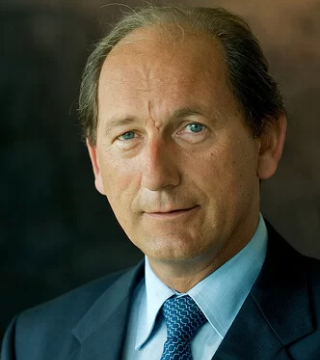
Chairman, Board of Directors, Nestlé S.A. / Co-Chair, 2030 WRG Governing Council

Paul Bulcke
Chairman, Board of Directors, Nestlé S.A. / Co-Chair, 2030 WRG Governing Council
Career
-
- 2017: Chairman, Board of Directors, Nestlé S.A (elected to the Board in 2008)
- 2008 – 2016: Chief Executive Officer, Nestlé S.A.
- 2004 – 2008: Executive Vice President, Nestlé S.A. / Director, Zone Americas
- 2000 – 2004: Market Head, Nestlé Germany
- 1998 – 2000: Market Head, Nestlé Czech and the Slovak Republic
- 1996 – 1998: Market Head, Nestlé Portugal
- 1980 – 1996: Marketing, Sales, and Division functions, Nestlé Peru, Nestlé Ecuador, and Nestlé Chile
- 1979 – 1980: Marketing Trainee, Nestlé S.A. (Switzerland, Spain, Belgium)
- Since 1979: Nestlé Group (Vevey, Switzerland)
- 1977 – 1979: Financial Analyst, Scott Graphics International (Bornem, Belgium)
- Education
-
- 1995: Program for Executive Development, International Institute for Management Development (Switzerland)
- 1976 – 1977: Post-Graduate in Management, Vlerick Leuven Gent Management School (Belgium)
- 1972 – 1976: Commercial Engineer, University of Louvain (Belgium)
- Mandates
-
- Chairman, Nestlé S.A. (Switzerland)
- Chairman, Strategic Advisory Board, Nestlé Skin Health S.A. (Switzerland)
- Chairman, Strategic Advisory Board, Nestlé Health Science S.A. (Switzerland)
- Vice-Chairman, Board of Directors, L’Oréal (France)
- Board Member, Roche Holding Ltd. (Switzerland)
- Member, International Business Council, World Economic Forum
- Member, European Round Table of Industrialists
- Member, Board of Trustees, Avenir Suisse
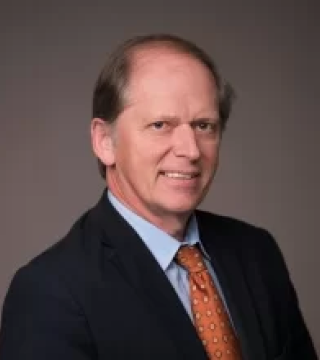
Vice President for Sustainable Development, World Bank / Co-Chair, 2030 WRG Governing Council

Juergen Voegele
Vice President for Sustainable Development, World Bank / Co-Chair, 2030 WRG Governing Council
Juergen Voegele, Ph.D., assumed the position of Vice President for Sustainable Development at the World Bank on April 1, 2020. In this role, he oversees the work of Global Practices and thematic groups that bring together the best expertise from across the World Bank Group and from partners, to help countries tackle their most complex challenges in the area of sustainable development. The practices and groups under his responsibility include Agriculture and Food; Climate Change; Environment, Natural Resources and Blue Economy; Environmental and Social Framework Implementation Unit; Social Development; Urban, Disaster Risk Management, Resilience and Land; and Water.
Prior to this appointment, Dr. Voegele was Global Director of the World Bank’s Climate Change Group and Senior Director of the World Bank’s Agriculture and Food Global Practice. Dr. Voegele is chair of the CGIAR System Council Board, which oversees agricultural research programs tackling poverty, food and nutrition security, and improved natural resource management around the world. Since 2016, Dr. Voegele has served as co-chair of the Global Future Councils of the World Economic Forum. He is also a member of the EAT Foundation Advisory Board since May 2017.
Since joining the World Bank in 1991, Dr. Voegele has held several assignments, chairing the Agriculture and Rural Development Sector Board as well as the Environment Sector Board, leading the Agriculture Unit in China, the Agriculture and Rural Development Unit of the Europe and Central Asia Region, and the Agriculture and Rural Development Department of the World Bank (later recast as the Agriculture and Environmental Services Department). Career highlights include his leadership of the acclaimed Loess Plateau watershed management project in China and managing a multi-sectoral team that disbursed more than $1 billion for 70 projects in response to the global Avian influenza crisis. Those latter efforts were replicated during the 2008 global food crisis.
Dr. Voegele holds a PhD in Agricultural Economics and a Master’s in Agricultural Engineering from the University of Hohenheim, in Germany.
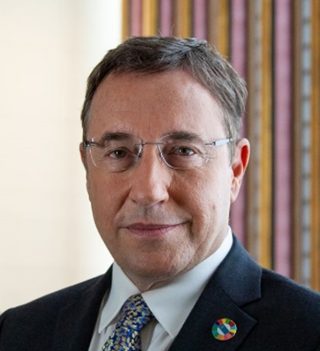
Administrator, United Nations Development Programme (UNDP)

Achim Steiner
Administrator, United Nations Development Programme (UNDP)
Career
Achim Steiner became UNDP Administrator on 19 June 2017. The United Nations General Assembly confirmed his appointment following his nomination by Secretary-General António Guterres. In April 2021, the General Assembly confirmed his appointment to a second four-year term beginning in June 2021.
Mr. Steiner is also the Vice-Chair of the UN Sustainable Development Group, which unites 40 entities of the UN system that work to support sustainable development.
Over nearly three decades, Achim Steiner has been a global leader on sustainable development, climate resilience and international cooperation. He has worked tirelessly to champion sustainability, economic growth and equality for the vulnerable, and has been a vocal advocate for the Sustainable Development Goals.
Prior to joining UNDP, he was Director of the Oxford Martin School and Professorial Fellow of Balliol College, University of Oxford. Mr Steiner has served across the United Nations system, looking at global challenges from both a humanitarian and a development perspective. He led the United Nations Environment Programme (2006-2016), helping governments invest in clean technologies and renewable energy. He was also Director-General of the United Nations Office at Nairobi. Achim Steiner previously held other notable positions including Director General of the International Union for the Conservation of Nature, and Secretary General of the World Commission on Dams.
Achim Steiner has lived and worked in Africa, Asia, the Middle East, Europe, Latin America and the United States. He graduated in Philosophy, Politics and Economics (MA) from Worcester College, Oxford University and holds an MA from the University of London/School of Oriental and African Studies (SOAS).
Education
- MA in Philosophy, Politics, and Economics, Worcester College at Oxford University (England)
- MA, School of Oriental and African Studies at the University of London (England)
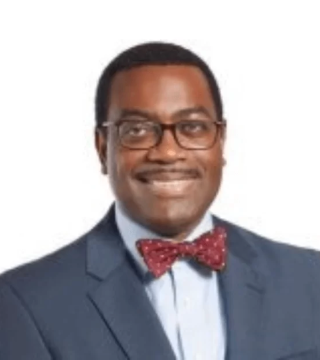
President, African Development Bank (AfDB)

Akinwumi Adesina
President, African Development Bank (AfDB)
Career
Akinwumi Adesina is the eighth elected President of the African Development Bank Group. He was elected to the position on May 28, 2015 by the Bank’s Board of Governors at its Annual Meetings in Abidjan, Côte d’Ivoire. Mr. Adesina took office at the Bank’s headquarters in Abidjan on September 1, 2015 and will serve an initial five-year term.
Mr. Adesina is a distinguished development economist and agricultural development expert with 25 years of international experience. He is the first Nigerian to serve as President of the Bank Group.
Mr. Adesina served as Nigeria’s Minister of Agriculture and Rural Development from 2011 to 2015, during which time he implemented bold policy reforms in the fertilizer sector and pursued innovative agricultural investment programs to expand opportunities for the private sector.
Mr. Adesina was previously Vice President of Policy and Partnerships at the Alliance for a Green Revolution in Africa. He was also Associate Director of Food Security at the Rockefeller Foundation in New York, where he worked for a decade (1998 – 2008) in senior leadership positions, including as Regional Office Director and Representative for Southern Africa.
Mr. Adesina was Principal Economist and Social Science Research Coordinator at the International Institute of Tropical Agriculture, Principal Economist and Coordinator of the West Africa Rice Economics Task Force at the West Africa Rice Development Association, and an Assistant Principal Economist at the International Crop Research Institute for the Semi-Arid Tropics. From 2008 to 2010, he was the President of the African Association of Agricultural Economists.
Mr. Adesina has received a number of global awards for his leadership and work in agriculture. In 2010, United Nations Secretary-General Ban Ki-moon appointed him as one of 17 global leaders to spearhead the Millennium Development Goals, along with Bill Gates, the Spanish Prime Minister, and the President of Rwanda. Mr. Adesina was named Person of the Year by Forbes Africa magazine in 2013.
Education
- 1988: won the prestigious Rockefeller Foundation Social Science Post-Doctoral Fellowship, which launched his international career in global agricultural development
- 1988: Ph.D. in Agricultural Economics, Purdue University (United States)
- Outstanding Ph.D. Thesis Award
- 1981: first-class honors bachelor’s degree in Agricultural Economics, University of Ife (Nigeria)
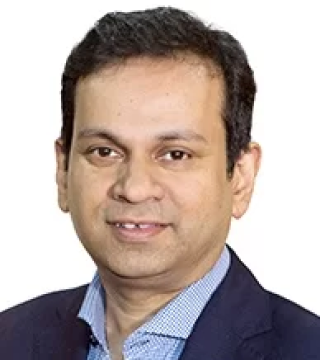
Executive Director, BRAC Bangladesh

Asif Saleh
Executive Director, BRAC Bangladesh
Asif Saleh is the executive director of BRAC Bangladesh. He brings with him a diverse multi-sectoral experience in senior leadership roles in private, public and non-government sectors, with a proven track record of effectively managing interfaces of development programming, operational and financial sustainability and building effective partnerships, both within and outside BRAC.
Mr. Saleh has been deeply anchored in driving the strategic direction of BRAC. He joined the organization in 2011, and took up an increasingly important role in leading advocacy for social change, information technology, communications and social innovation. He has been instrumental in BRAC’s concentration on emerging development challenges in the areas of urban poverty, youth skills development, inclusive growth and migration. As the senior director of the empowerment program cluster, he led BRAC’s new programmatic areas, namely, the urban development program, human rights and legal aid services, skills development program and migration program. He also led the development of BRAC’s five-year strategic plan in 2016.
Prior to joining BRAC, Mr. Saleh worked as a policy specialist for the Access to Information (A2i) Programme at the Prime Minister’s Office. As part of the Government’s Digital Bangladesh initiative, he led the policy effort to expand affordable broadband connectivity across Bangladesh and devised the Government’s m-governance strategy. He was also a key part of the Union Digital Centre team that created digital service centers in every union in Bangladesh. Since then, he has actively promoted the role of technology and frugal innovation in the development sector. He spent 12 years in Goldman Sachs in different fin-tech roles and institutional client sales in New York and London, ending his term there as an Executive Director. He has also worked in Glaxo Wellcome, IBM and Nortel.
Mr. Saleh is the founder of Drishtipat, a global organization with chapters across the globe focusing on human and economic rights of Bangladeshis. He was recognized for his work by Asia Society’s Asia 21 program in 2008, the Bangladeshi American Foundation in 2007, and was selected as an Asia 21 Fellow in 2012. He was selected as a Young Global Leader by the World Economic Forum in 2013.
Mr. Saleh is an active member in a range of international networks and alliances, advocating inclusive achievement of the Sustainable Development Goals. He is a non-resident fellow at the Center for Global Development in Washington, D.C. He is a member of the Millions Learning International Advisory Group, Brookings Institute, which addresses the question of how to scale quality education for all children and youth. He is also a member of the South Africa-based Innovation Edge, an institution promoting early childhood development.
Mr. Saleh chairs BRAC IT Services Limited, co-chairs BRAC Net, and is on the Board of BRAC Bank, and edotco Bangladesh Ltd. He is also a board member of multiple non-profits, including Institute of Informatics and Development, and Maya.
Mr. Saleh holds a Bachelor’s degree in computer science and an MBA in management and marketing from the Stern School of Business, New York University.
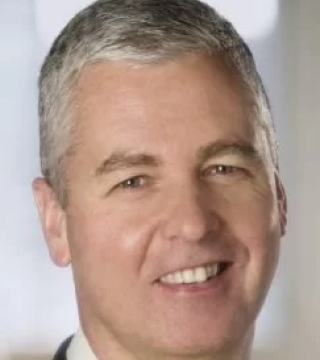
Director-General, Global Green Growth Institute (GGGI)

Frank Rijsberman
Director-General, Global Green Growth Institute (GGGI)
Career
Dr. Frank Rijsberman leads the Global Green Growth Institute (GGGI) in supporting governments’ transition toward a model of economic growth that is environmentally sustainable and socially inclusive. With over 30 years’ experience addressing the challenges of environmental sustainability and poverty reduction with leading international organizations and philanthropic foundations, Dr. Rijsberman was appointed as the Director-General of the Institute on October 1, 2016.
Since assuming his position, Dr. Rijsberman has engaged with senior international stakeholders to drive the green growth agenda and help mobilize finance for climate action and sustainable development. As an advocate for sustainable development, he is focused on supporting GGGI Member and partner governments to implement their Nationally Determined Contributions (NDCs) under the Paris Agreement and achieve their Sustainable Development Goal targets. Dr. Rijsberman’s priorities are to support collaborative NDC implementation among GGGI Members, as outlined under Article 6 of the Paris Agreement, and assist its Member governments in greening their investment to deliver inclusive, pro-poor green growth, as well as climate action.
Prior to joining GGGI, Dr. Rijsberman served as Chief Executive Officer of the Consultative Group for International Agricultural Research (CGIAR) Consortium. In this role, he led CGIAR’s transformation from 15 independent research centers toward a single integrated organization. This included a process of cultural and institutional change toward results-based management, including the development of the Consortium’s 2016 – 2030 Strategy and new portfolio of research programs for 2017 to 2022, building an integrated organization and governance structure, and developing its policies and procedures to ensure accountability.
From 2010 to 2012, Dr. Rijsberman was the first Director of Water, Sanitation, and Hygiene for the Bill and Melinda Gates Foundation, where he developed a strategy to help achieve universal access to sustainable sanitation services using radical new technologies and innovative market-based mechanisms.
Dr. Rijsberman also has worked as Program Director at Google.org, the philanthropic arm of Google, where he led grantmaking in the public health initiative and was responsible for programs and partnerships in health, disaster response, geo-informatics, and climate-change adaptation.
Before working at Google, Dr. Rijsberman was Director-General of the International Water Management Institute, an international research institute headquartered in Colombo, Sri Lanka.
Education
- BS and MSc in Civil Engineering, Delft University of Technology (Netherlands)
- Ph.D. in water resources management and planning, Colorado State University (United States)
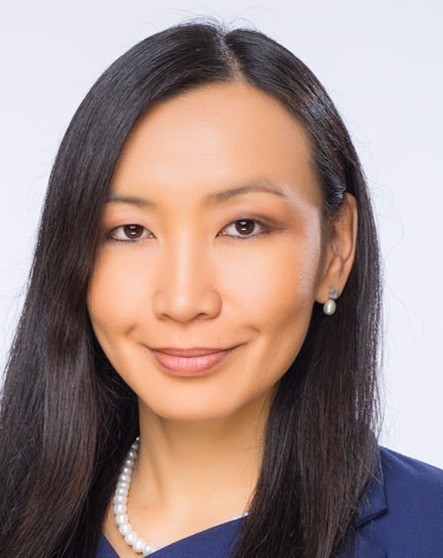
Managing Director, Centre for Nature and Climate, World Economic Forum

Gim Huay Neo
Managing Director, Centre for Nature and Climate, World Economic Forum
Ms. Neo Gim Huay is Managing Director, Centre for Nature and Climate at the World Economic Forum. Before joining the Forum, she held various Managing Director roles in Temasek, including Climate Change Strategy, Sustainability and Enterprise Development. Temasek is an investment company, headquartered in Singapore with a net portfolio value of approx. USD$280 billion in 2020. Gim Huay was responsible for seeding new businesses as well as working with Temasek’s existing portfolio of companies to develop strategy and build new capabilities. She also spearheaded Temasek’s sustainability strategy and initiatives across the organisation and within the community. Prior to joining Temasek, Gim Huay was a Management Consultant at McKinsey & Co in the Lagos, New York and San Francisco offices. She also served in the Singapore Public Service as an Administrative Officer, with stints in the Ministry of Finance, Ministry of Trade and Industry, the Prime Minister’s Office as well as the Singapore Embassy in the United States. Gim Huay holds a Masters in Business Administration (Arjay Miller Scholar) from Stanford University and a Masters of Engineering (Distinction) and Bachelor of Arts (First Class Honors) from Cambridge University. She was selected as an Eisenhower Fellow in 2015.
Director-General, International Union for Conservation of Nature (IUCN)
Grethel Aguilar
Director-General, International Union for Conservation of Nature (IUCN)
Career
Dr. Grethel Aguilar assumed office as Director-General of the International Union for Conservation of Nature (IUCN) in October 2023.
Dr. Aguilar brings with her more than 25 years of experience in conservation and sustainable development, having worked extensively on developing and applying environmental law and policy in collaboration with governments and civil society. In particular, she is deeply passionate about the rights of indigenous peoples and local communities.
Through her work in field projects, Dr. Aguilar has helped communities access clean water, advocated for environmental justice, assisted indigenous peoples in obtaining rights to their natural resources, and championed gender equality in environmental governance.
Before serving as IUCN Director-General, Dr. Aguilar held the position of Deputy Director General – Regions and Outposted Offices, starting in 2021. Prior to this, she was IUCN Acting Director General (2019-20), and Regional Director for Mexico, Central America and the Caribbean, a role she took on in 2005. Prior to joining the IUCN, she was a member of the Costa Rican Environmental Law Center, then worked as a consultant for organizations such as the Central American Commission for Environment and Development, United Nations Environment Programme, and various governments.
Dr. Aguilar, a Costa Rican national, has authored multiple publications in the fields of environmental law and policy. She served as the 2018 Dorothy S. McCluskey Visiting Fellow in Conservation at the Yale School of Forestry & Environmental Studies.
Education
2001: Doctor of Law, University of Alicante (Spain)
- Outstanding cum laude
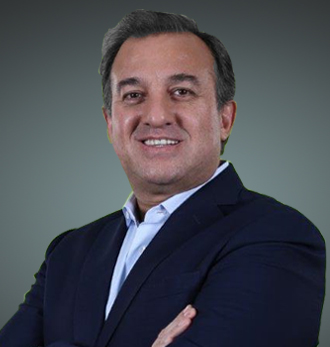
Group CEO, UPL Limited

Jai Shroff
Group CEO, UPL Limited
Jai Shroff is the Group CEO of UPL Limited. He is a well-recognized global leader in the Chemical & Agri-Inputs industry with over 30 years experience in India and internationally.
UPL group is focused on strengthening the food security in over 130 countries by offering world class technologies and solutions for sustainable agriculture production. Under Jai’s leadership, UPL has been one of the fastest growing agri-input companies in the world with strong presence in the Seeds, Plant Nutrition, Crop protection and Post harvest food preservation value chains. He has driven the transformation of UPL from a largely domestic player to a truly global Indian multinational organization. UPL has a global workforce comprising of more than 25 different nationalities. It operates 35 manufacturing plants in India, Asia, Europe, Latin and North America and serve the farming community across the globe.
Jai’s vision for UPL is to endeavour to continually provide smart, affordable and profitable solutions to the global farming community with a strong focus on Innovation, Research and Excellence by “Doing Things Better’.
Jai believes in the power of collaboration and inter-sectoral partnerships. He is actively involved in the global development agenda, including the World Economic Forum’s Grow Africa and Grow Asia initiatives, IFPRI’s Sustainable Agriculture and Global Food Security Initiative, WBCSD, Chicago Council, IGD and ICAR.
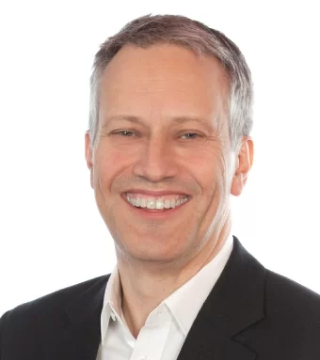
Chairman and CEO, The Coca-Cola Company

James Quincey
Chairman and CEO, The Coca-Cola Company
Career
Before becoming CEO on May 1, 2017, James Quincey led all of the company’s operating units worldwide as President and Chief Operating Officer from August 2015.
From 2013 to 2015, Mr. Quincey served as President of The Coca-Cola Company’s Europe Group, which is comprised of 38 countries including the Member States of the European Union, the European Free Trade Association countries, and the Balkans. Under his leadership, the Europe Group, the company’s most profitable operating group, strategically expanded its brand portfolio and improved execution across the geography. These actions helped drive solid topline growth and expanded the company’s leading market share position in total non-alcoholic ready-to-drink beverages despite the volatile and prolonged macroeconomic challenges in the region.
Mr. Quincey also played an instrumental role in leading the merger of Coca-Cola Enterprises, Coca-Cola Iberian Partners, and Coca-Cola Erfrischungsgetranke AG to form Coca-Cola European Partners Plc., which is now the world’s largest independent Coca-Cola bottler based on net revenues.
Prior to Mr. Quincey’s role as head of the Europe Group, he served as President of the Northwest Europe and Nordics business unit from 2008 to 2012. Among Mr. Quincey’s many accomplishments during this time was his leadership during the acquisition of innocent juice in 2009. innocent is now sold in more than 14 countries and is well on its way to becoming one of the company’s brands that generates more than US$ 1 billion in annual revenue.
From 2005 to 2008, Mr. Quincey was President of the Mexico Division. During his tenure in Mexico, he grew market share for the Coca-Cola brand and expanded the company’s portfolio with the re-launch of Coca-Cola Zero and the acquisition of Jugos de Valle, one of the company’s US$-21 billion brands that is now sold in 16 countries.
Mr. Quincey joined the company in Atlanta in 1996 as Director of Learning Strategy for the Latin America Group. He went on to serve in a series of operational roles of increased responsibility in Latin America, leading to his appointment as President of the South Latin Division in 2003. During his time in South Latin, Mr. Quincey was instrumental in developing and executing a successful brand, pack, price, and channel strategy, which has now been replicated in various forms throughout Coca-Cola’s global system.
Prior to joining Coca-Cola, Mr. Quincey was a Partner in strategy consulting at The Kalchas Group, a spin-off from Bain & Company and McKinsey.
Education
Bachelor’s degree in Electronic Engineering, University of Liverpool (England)
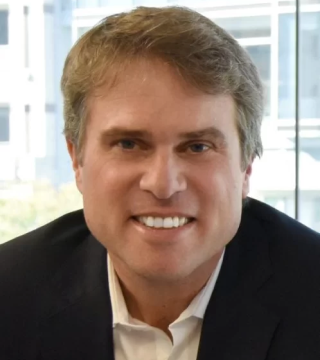
CEO, Inter-American Development Bank Invest (IDB)

James Scriven
CEO, Inter-American Development Bank Invest (IDB)
James P. Scriven is the CEO of IDB Invest, the private sector institution of the Inter-American Development Bank (IDB) Group, with a portfolio of $13.1 billion in assets under management and 385 clients in 25 countries. IDB Invest is a multilateral development bank focus on providing innovative financial solutions and advisory services for its clients, while achieving the UN Sustainable Development Goals in Latin America and the Caribbean. A dual Argentine/British citizen, Mr. Scriven was previously Vice President of Corporate Risk and Sustainability at the International Finance Corporation (IFC) in addition to other leadership positions. Before joining the IFC, Mr. Scriven was Chief Financial Officer of Banco Hipotecario in Argentina. During the past two decades, he has concentrated his efforts on promoting the role of the private sector in development. Mr. Scriven holds a Master´s degree in Finance from Universidad del Centro de Estudios Macroeconómicos of Argentina, and a degree in Business Administration from the Pontifical Catholic University of Argentina. To learn more, follow @JamesPScriven and linkedin.com/in/james-p-scriven.
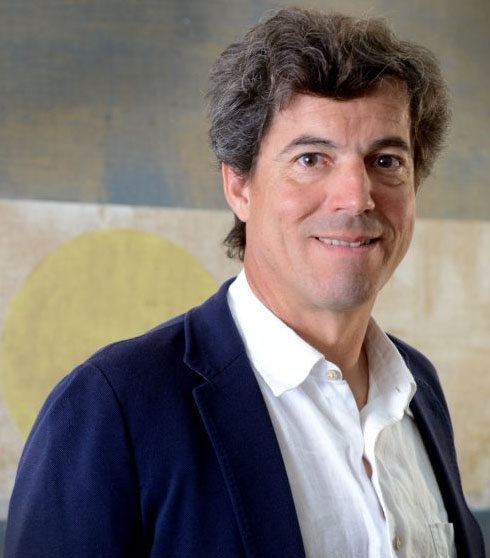
Chair, Global Water Partnership (GWP)

Pablo Bereciartua
Chair, Global Water Partnership (GWP)
Bereciartua is a former Secretary of Infrastructure and Water of Argentina from 2017 to 2019. He was responsible for one of the main federal investment areas (water supply and sanitation, adaptation to climate change, expansion of the agricultural frontier, and large-scale infrastructure including dams and aqueducts) and the implementation of national water policies.
Prior to that, he was Undersecretary of Water Resources of Argentina (2015 to 2017); President of the Water Planning Agency of the Buenos Aires metropolitan area (2015-2019), in charge of defining the water supply and sanitation service for 14 million people; and Director of Infrastructure of the Government of the City of Buenos Aires (2007-2009).
Bereciartua is a Professor at the University of Buenos Aires and former Dean at the Buenos Aires Institute of Technology (ITBA). He is a member of the Advisory Board of the EIT Climate KIC and a member of the Steering Committee at the International Symposium on Next Generation Infrastructures (ISNGI).
Among other degrees, Bereciartua has a M.Sc. in Engineering and Economics from the University of California at Berkeley, California, USA. He graduated with honors in Civil, Hydraulic, and Transportation Engineering from the Universidad Nacional de la Plata, Argentina. He has a MBA from the Universidad de San Andres in Buenos Aires, Argentina. Bereciartua is a Yale World Fellow.
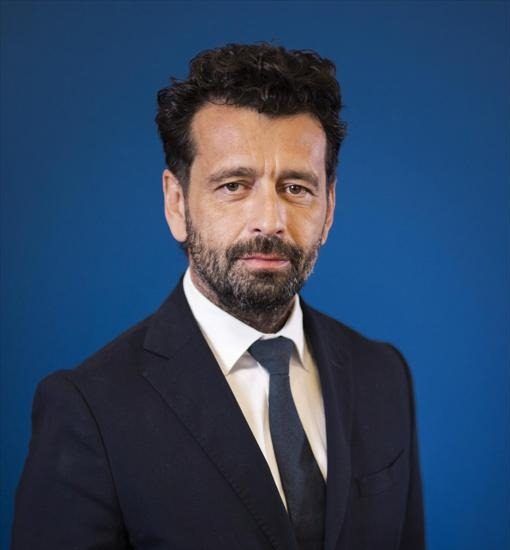
State Secretary for Macroeconomics and International Affairs, Government of Hungary

Tibor Tóth
State Secretary for Macroeconomics and International Affairs, Government of Hungary
Mr. Tibor Tóth is State Secretary, responsible for Macroeconomics and International Affairs at the Ministry of Finance. Furthermore, he is the Chairman of the National Council of the Organisation for Economic Co-operation and Development, the Alternate Governor of the World Bank Group, the Governor in the Board of Governors of the Multilateral Investment Guarantee Agency (MIGA) and also member of the EFC.
He graduated from the University of Miskolc in 1996 and obtained degrees both at the Faculty of Economics, and at the College of Foreign Trade. After graduation, he worked as a tax advisor and later as a senior advisor at Arthur Andersen.
For eight years he held senior positions at the ABN Amro Bank and at Citibank before he became the Deputy CEO of the KDB Bank (Europe) Zrt., between 2005 and 2021. During this sixteen years, at the beginning he was the Head of Corporate Banking, Corporate and Retail Banking Head, the Executive Vice President then the Member of the Board of Directors.
In 2021 he was appointed as M&A Director at Biggeorge/Otthon Centrum.
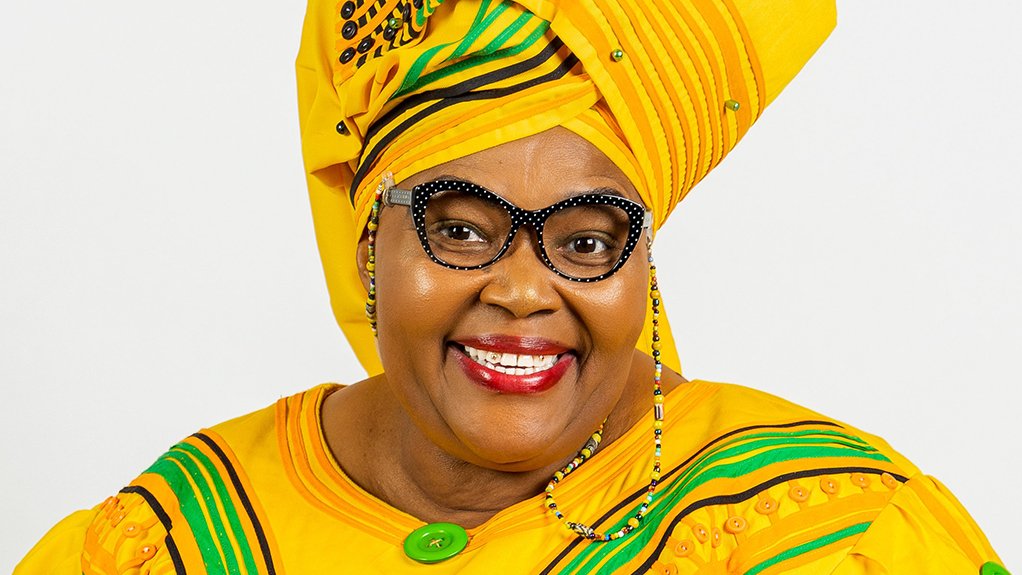
Water and Sanitation Minister, South Africa

Pemmy Majodina
Water and Sanitation Minister, South Africa
Pemmy Majodina was appointed Water and Sanitation Minister on June 30, 2024, following the formation of South Africa’s seventh administration under the Government of National Unity.
Majodina has a strong educational background and has been actively involved in various political organizations, including the African National Congress (ANC). Majodina served on various levels of the South African Student Congress (SASCO), the ANC Youth League (ANCYL), the South African Communist Party & the ANC Women’s League (ANCWL). She has also served in the military wing of the ANC, uMkhonto Wesizwe, as an underground operative.
She has been a member of the National Assembly since June 14, 2024, and has previously served in various capacities in the Eastern Cape Provincial Legislature (ECPL), including as the Member of the Executive Council (MEC) for Health, Roads and Public Works, Social Development and Special Programmes, Sport, Recreation, Arts and Culture. Additionally, she has been the Chairperson of the Public Service Select Committee and the Chief Whip of the Majority Party from May 2019 until May 2024.
In 2010, Majodina was awarded with an Honory Doctorate on Community Development by Arlington University of Australia. In 2011, she was awarded a Reverend Baartman Award for serving people with distinction. In 2015 she received the Global Humanitarian Award in the United States of America by human rights activist, Reverend Jesse Jackson.
Sources:
Members of the Steering Board are senior practitioners from the same organizations who review and submit the strategic plan and budget annually to the Governing Council. The Board also supervises the Secretariat; approves its plan, budget, and proposed country programs; supervises funding and resource development within countries; and comments on 2030 WRG’s work program. The Board’s members provide significant amounts of time and input to preparing for, participating in, and following up on frequent meetings; making connections in relevant geographies; and supporting their principals in their global agenda roles.
Members of the Steering Board

Managing Director, Centre for Nature and Climate, World Economic Forum / Co-Chair, 2030 WRG Steering Board

Gim Huay Neo
Managing Director, Centre for Nature and Climate, World Economic Forum / Co-Chair, 2030 WRG Steering Board
Ms. Neo Gim Huay is Managing Director, Centre for Nature and Climate at the World Economic Forum. Before joining the Forum, she held various Managing Director roles in Temasek, including Climate Change Strategy, Sustainability and Enterprise Development. Temasek is an investment company, headquartered in Singapore with a net portfolio value of approx. USD$280 billion in 2020. Gim Huay was responsible for seeding new businesses as well as working with Temasek’s existing portfolio of companies to develop strategy and build new capabilities. She also spearheaded Temasek’s sustainability strategy and initiatives across the organisation and within the community. Prior to joining Temasek, Gim Huay was a Management Consultant at McKinsey & Co in the Lagos, New York and San Francisco offices. She also served in the Singapore Public Service as an Administrative Officer, with stints in the Ministry of Finance, Ministry of Trade and Industry, the Prime Minister’s Office as well as the Singapore Embassy in the United States. Gim Huay holds a Masters in Business Administration (Arjay Miller Scholar) from Stanford University and a Masters of Engineering (Distinction) and Bachelor of Arts (First Class Honors) from Cambridge University. She was selected as an Eisenhower Fellow in 2015.
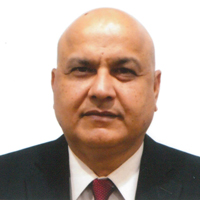
Global Director, Water Global Practice, World Bank Group / Co-Chair, 2030 WRG Steering Board

Saroj Kumar Jha
Global Director, Water Global Practice, World Bank Group / Co-Chair, 2030 WRG Steering Board
Mr. Saroj Kumar Jha is the Global Director for the World Bank Group’s Water Global Practice (GP). In his current assignment, Mr Jha is a core member of the GP’s senior management team, which drives the policy direction of the GP, oversees a portfolio of $24 billion in water-related investments, analytical work, multi-donor trust funds and global partnerships. Mr Jha supports an integrated approach to water security and inclusive service delivery, accelerated climate action and food security through Bank’s Global Water Strategy, and providing policy advice and operational support in response to specific country needs.
Before this appointment, Mr. Jha was World Bank’s Regional Director of the Middle East Department, Senior Director for the Fragility, Conflict and Violence Global Practice at the World Bank Group, the World Bank’s Regional Director for Central Asia based in Almaty. In addition, Mr. Jha served as the Bank’s Global Manager for the Disaster Risk Management Practice and as Head of the Global Facility for Disaster Reduction and Recovery (GFDRR), which he founded in 2006.
Mr. Jha, an Indian national, joined the World Bank in 2005 as a Senior Infrastructure Specialist in the Sustainable Development Network, after working for the Government of India (1990-2005) and United Nations agencies (1999-2004) as a senior executive in the field of public sector management, infrastructure financing, natural resources management, natural disaster prevention, and environmental sustainability.
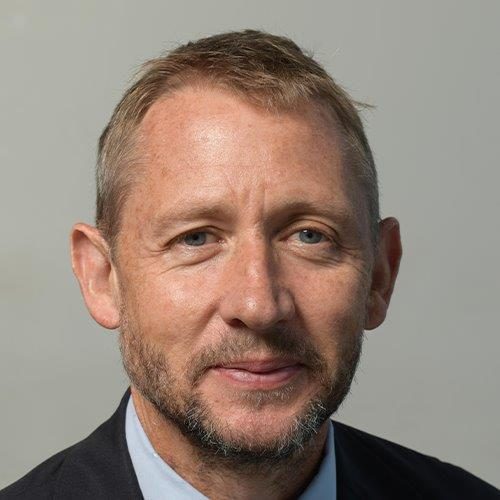
Program Manager, 2030 Water Resources Group

Michael John Webster
Program Manager, 2030 Water Resources Group
Michael “Mike” John Webster was appointed as the new Program Manager for 2030 WRG on August 1, 2023, to lead the way in alignment with the partnership’s new strategy. Mike’s return to the World Bank comes at a pivotal moment when the Bank is amplifying its collaboration with the private sector to ensure water security, sanitation, and swift advancement toward the water as well as climate SDGs. Mike is spearheading 2030 WRG’s mission, working closely with the Governing Council and Steering Board toward championing high-level global water advocacy and facilitating country-level multi-stakeholder water security interventions to deliver on scale and with impact.
Prior to joining 2030 WRG, Mike was Executive Director of the Water and Sanitation Directorate in the City of Cape Town. In this position, he headed the water and wastewater utility responsible for the full water cycle, from “source to tap” and back to the environment.
The utility serves the 4.7 million people of Cape Town through 660,000 water and sewer connections and 20,000 km of pipeline. It has 5,100 staff, an annual operating budget of over USD 500 million, and an annual capital budget of USD 200 million.
Over the past five years, Mike led the City’s response to the 2015-17 drought that almost resulted in “day zero,” by implementing a strategy to achieve water security for the future. Under Mike’s leadership, the City implemented a series of reforms in sanitation, financial sustainability, and customer services; and created a modern fit-for-purpose water utility. This turn-around culminated in Cape Town becoming the first city in Africa to be recognized as a member of the Leading Utilities of the World network, the gold standard of water and wastewater utility performance.
Prior to joining the City, Mike worked for the World Bank for 16 years as a water and sanitation specialist based in Washington, DC. He joined the Bank through the Young Professionals Program and worked in operations in South Asia, Europe and Central Asia, and Africa with field assignments in India and Zimbabwe. Mike was Task Team Leader for 23 investment operations in water supply, sanitation, solid waste management, municipal services, rural infrastructure, environmental protection, and urban upgrading, as well as a number of analytical and advisory services.
Mike graduated as a civil engineer from the University of Cape Town and went on to do an MSc in engineering at Loughborough University and a Master in Public Policy at Princeton University.
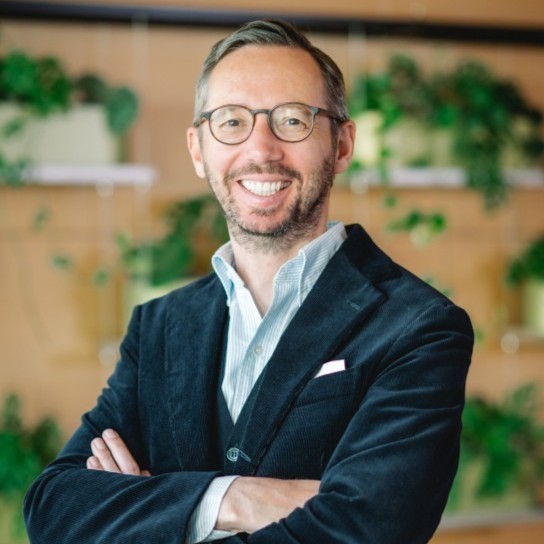
Global Head of Communications Operations & Deployment - Assistant Vice President, Nestlé

Ferhat Soygenis
Global Head of Communications Operations & Deployment - Assistant Vice President, Nestlé
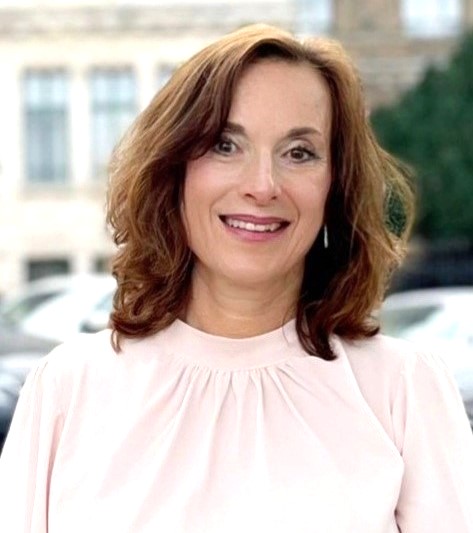
Head of Department, Department for Water Diplomacy and Tied Aid Credits, Ministry of Foreign Affairs & Trade, Government of Hungary

JÚLIA HORVÁTHNÉ BAGÓ
Head of Department, Department for Water Diplomacy and Tied Aid Credits, Ministry of Foreign Affairs & Trade, Government of Hungary
Previous Work Experience
- MINISTRY OF FOREIGN AFFAIRS AND TRADE OF HUNGARY
Diplomat
Head of Department for Water Management and Tied Aid Credits - EMBASSY OF HUNGARY, PRETORIA, SOUTH AFRICA
Diplomat, consul
Providing protection and assistance to home nationals in foreign countries (loss of passports, arrest in a foreign country, etc.) Notary and
other legal document services, emergency repatriation, dealing with death abroad. Other administrative tasks, such as authentication,
legalization, processing visa applications, etc. - MINISTRY OF FOREIGN AFFAIRS AND TRADE OF HUNGARY
Head of Division, Department for Joint Economic Commissions
Coordinating and following the Joint Economic Commissions’ sessions. Preparing briefings and reports, supervising the work of desk officers. Liaising with foreign representations and counterpart departments/institutions. - EMBASSY OF HUNGARY, DUBLIN, IRELAND
Diplomat – culture, press, consul
Planning/coordinating/implementing cultural/country image/social activities, press relations, media monitoring, consular tasks. - MINISTRY OF FOREIGN AFFAIRS AND TRADE OF HUNGARY
Head of Unit, Department for Investments
Liaising with companies with investments in Hungary - MINISTRY FOR NATIONAL ECONOMY OF HUNGARY
Senior Counsellor
Bilateral trade relations between HU and USA, UK, Ireland, Australia & Latin American countries. - EMBASSY OF HUNGARY, LONDON, UNITED KINGDOM
Trade Officer
Trade development, investment promotion. - MINISTRY FOR NATIONAL ECONOMY OF HUNGARY
Head of Secretariat, Deputy State Secretary for Economic Relations
Education
- BUDAPEST UNIVERSITY OF TECHNOLOGY AND ECONOMICS
Postgraduate diploma in Specialised Translation for Technical, Economic and Social Sciences - University of Public Service
Comprehensive exam in public administration - BUDAPEST BUSINESS UNIVERSITY, FACULTY OF INTERNATIONAL MANAGEMENT AND BUSINESS
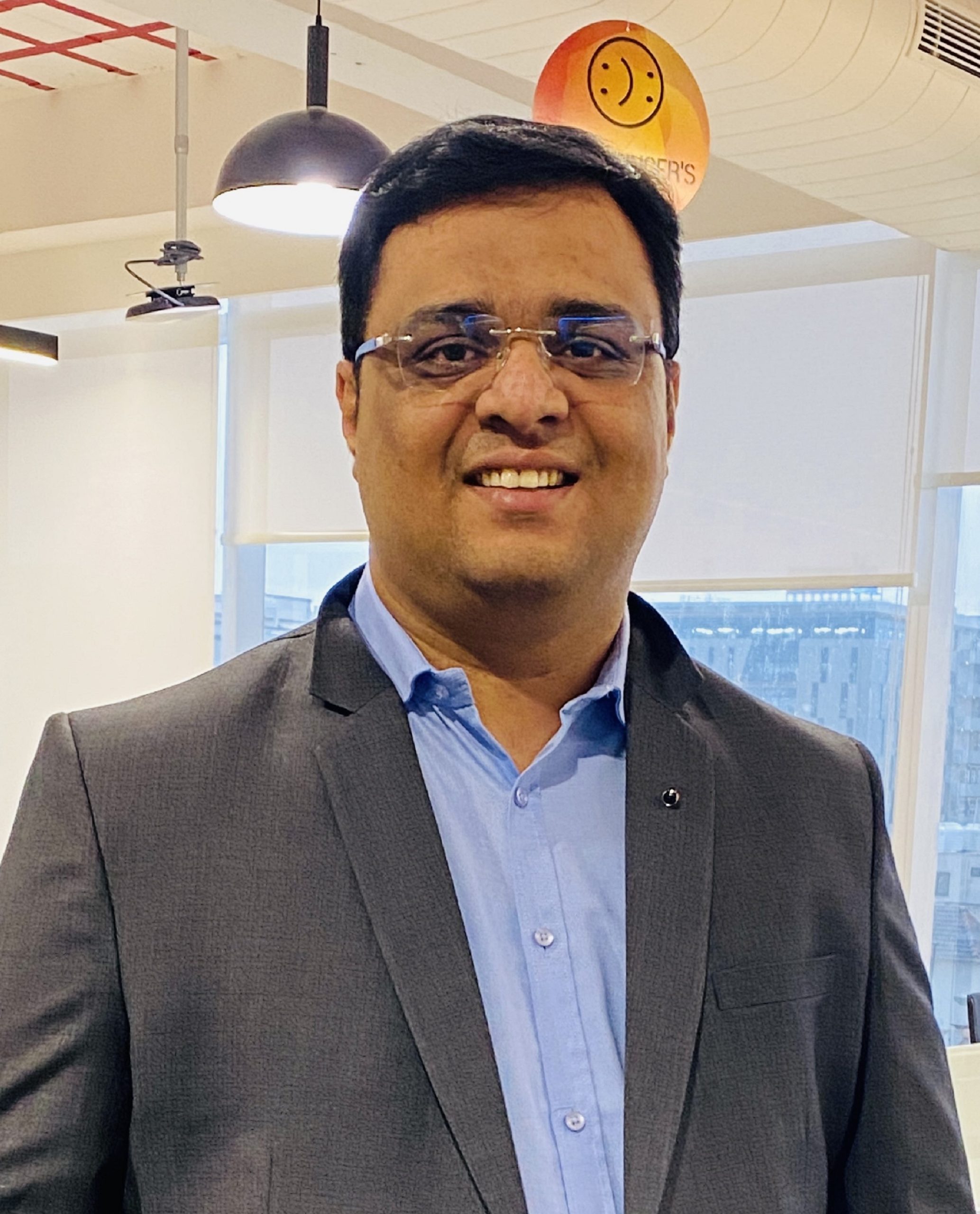
Head – Sustainability, UPL Limited

Harshal Sonawane
Head – Sustainability, UPL Limited
Harshal Sonawane is Head of Sustainability at UPL SAS Limited, based at the Mumbai headquarters. He holds a Bachelor of Technology (B. Tech.) in Agriculture Biotechnology and a Master of Business Administration (MBA) in Marketing with 16 years’ experience in the field of sustainable agriculture solutions and food security.
He has been associated with UPL for the last 14 years, working in Sales, Strategic Marketing, and as Crop Manager, Portfolio Lead, etc. across India. Since April 2023, he has been leading Sustainability at UPL SAS, where he has been working on ESG documentation, drought mitigation technologies, and climate-smart initiatives. He has also been developing and driving sustainable crop programs by creating consortia with farmers and like-minded enterprises to improve farm productivity with end-to-end sustainable interventions endorsed by recognized registries. Additionally, he has been building farmers’ resilience and community well-being, ensuring food security as well as digitalization and traceability for sustainable sourcing, and reducing environmental footprints of water, fertilizers, electricity, etc.
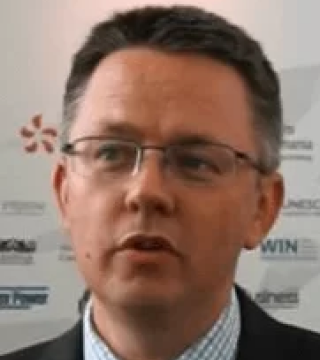
Director, Global Water Programme, International Union for Conservation of Nature (IUCN)

James Dalton
Director, Global Water Programme, International Union for Conservation of Nature (IUCN)
Career
James Dalton is the Director and Coordinator of Global Initiatives of the International Union for Conservation of Nature (IUCN) Global Water Programme. He has worked on water resources management issues for the last twenty years. Prior to joining the IUCN, Mr. Dalton worked at the Pacific Islands Applied Geoscience Commission in Fiji, where he was the Integrated Water Resources Management Adviser to Pacific Island governments. Prior to this, he was a water management and development consultant for ITAD Water, based in the United Kingdom but working internationally. Mr. Dalton spent years working for consecutive Department for International Development Senior Water Advisers in London as a consultant adviser.
Mr. Dalton has worked in over 25 countries worldwide, with extended periods working in the Pacific Islands, Kazakhstan and Kyrgyzstan, the Middle East, East Africa, and Eastern Europe.
Education
Doctorate in Civil and Environmental Engineering focusing on groundwater management in the Aral Sea Basin
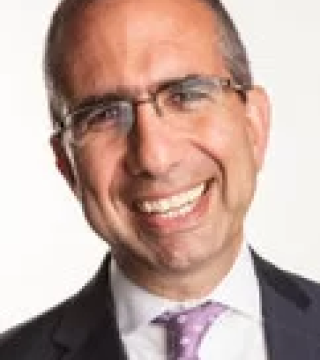
Vice-President, Global Public Policy and Sustainability, The Coca-Cola Company

Michael Goltzman
Vice-President, Global Public Policy and Sustainability, The Coca-Cola Company
BA in History, Tufts University; Master’s in Political Science, Institute for Political Studies, Université de Bordeaux; MA in International Law and Diplomacy, Fletcher School of International Law and Diplomacy. Formerly, with US Embassy, Paris. Since 1997, with Coca-Cola, including roles in Atlanta, Cairo, Hong Kong and Washington DC.

Chair, Global Water Partnership (GWP)

Pablo Bereciartua
Chair, Global Water Partnership (GWP)
Bereciartua is a former Secretary of Infrastructure and Water of Argentina from 2017 to 2019. He was responsible for one of the main federal investment areas (water supply and sanitation, adaptation to climate change, expansion of the agricultural frontier, and large-scale infrastructure including dams and aqueducts) and the implementation of national water policies.
Prior to that, he was Undersecretary of Water Resources of Argentina (2015 to 2017); President of the Water Planning Agency of the Buenos Aires metropolitan area (2015-2019), in charge of defining the water supply and sanitation service for 14 million people; and Director of Infrastructure of the Government of the City of Buenos Aires (2007-2009).
Bereciartua is a Professor at the University of Buenos Aires and former Dean at the Buenos Aires Institute of Technology (ITBA). He is a member of the Advisory Board of the EIT Climate KIC and a member of the Steering Committee at the International Symposium on Next Generation Infrastructures (ISNGI).
Among other degrees, Bereciartua has a M.Sc. in Engineering and Economics from the University of California at Berkeley, California, USA. He graduated with honors in Civil, Hydraulic, and Transportation Engineering from the Universidad Nacional de la Plata, Argentina. He has a MBA from the Universidad de San Andres in Buenos Aires, Argentina. Bereciartua is a Yale World Fellow.
Global Head of Water, Waste, and Cities - International Finance Corporation (IFC)
Sumeet Thakur
Global Head of Water, Waste, and Cities - International Finance Corporation (IFC)
Sumeet Thakur is Global Head of Water, Waste, and Cities at the International Finance Corporation (IFC), part of the World Bank. His focus is on emerging market investments and policy advice at the interface of infrastructure, energy, climate, and the environment. His present and prior roles involve senior-level client relationship management and strategic oversight of geographically dispersed, multi-disciplinary global teams undertaking debt/equity investments in corporate and project finance settings. Sumeet also is a Board Member for companies in Asia and Africa, focusing on energy and telecommunications.
Members of the Secretariat
Extended-Term Consultant / Kazakhstan Country Coordinator
Ilyas Zhukenov
Extended-Term Consultant / Kazakhstan Country Coordinator
Ilyas is an accomplished professional hailing from Kazakhstan with a solid foundation in Economics, Finance, and Public Administration. His career spans a range of analytical and leadership positions both in public and private sectors. Serving as Deputy CEO at QazMunayHim LLP, he specialized in petrochemical production for the oil and gas sector and honed his expertise in industrial wastewater treatment. In the public sector, Ilyas has made significant contributions as Deputy Head of the Information and Analytical Support Department at the President’s Executive Office, focusing on water security and related infrastructure. His role at the Security Council’s Analytical Department further emphasized his commitment to water security, including issues surrounding transboundary rivers and water diplomacy. At the Ministry of Energy, as Deputy Director of Strategic Planning and Analysis, Ilyas addressed critical environmental issues, delving into climate change, renewable energy, waste management, and environmental protection.
With such an extensive background in water security and environmental management, Ilyas is an asset to the 2030 WRG and its initiatives to achieve water-related aspects of the Sustainable Development Goals.
Senior Water Resources Management Specialist / East Africa Regional Coordinator
David Gachui Wanyoike
Senior Water Resources Management Specialist / East Africa Regional Coordinator
David joins the 2030 WRG Program as a Senior Water Resources Management Specialist and he will be supporting the East Africa Region (Ethiopia, Rwanda and Kenya). David brings over 17 years of experience working in development-oriented and private sector organizations. He has held various analytical and managerial roles in finance, energy and water. Prior to joining 2030 WRG Group was the Senior WASH Program Manager for the Netherlands Development Organisation (SNV) based in Kenya where for 8 years he managed various water programs financed by different donors such as the EU, FCDO, USAID and DGIS (Dutch Ministry of Foreign Affairs). He led their private sector participation strategy in water and was successful in piloting various forms of localized public private partnerships that improved water resilience.
David holds an MBA in Finance and is a Certified Expert in Climate & Renewable Energy Finance from the Frankfurt School of Finance and Management. He is a keen advocate for sustainable approaches on water resources management and believes that mutual partnerships brought about by convening the right mix of partners can achieve great impact.
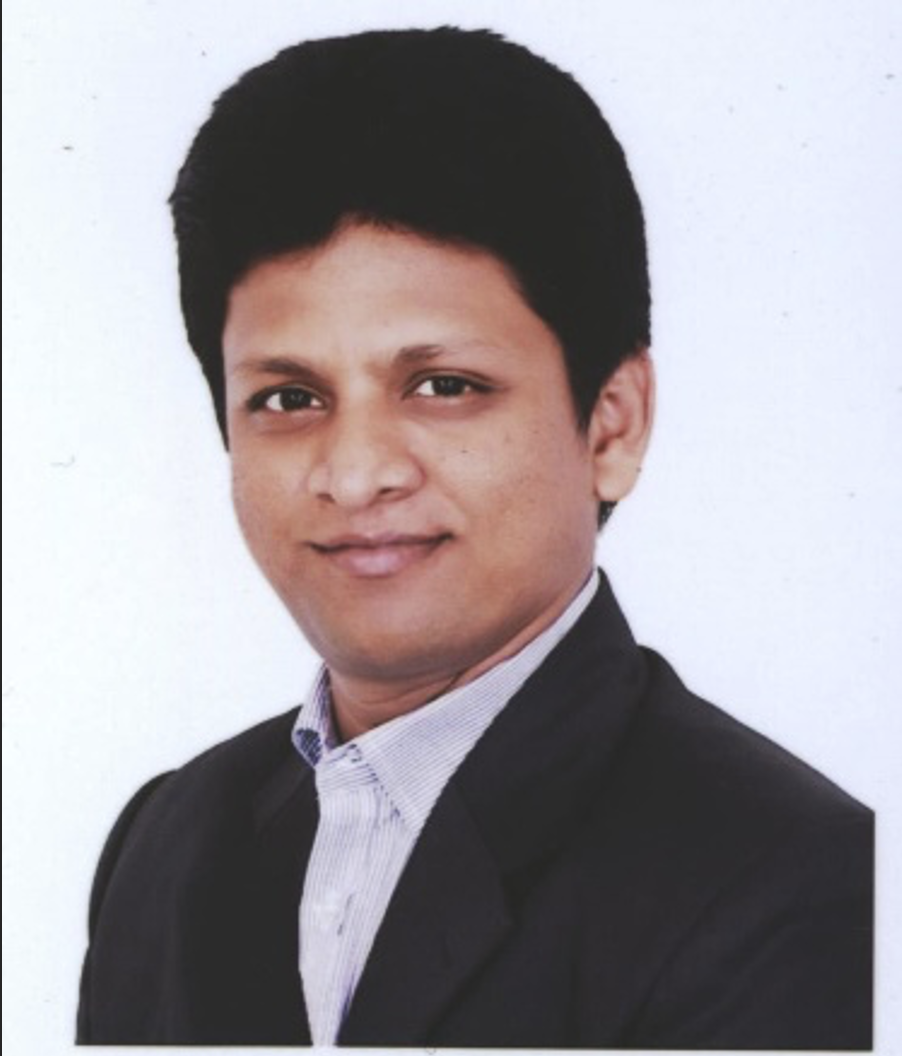
Extended-Term Consultant / Bangladesh Country Coordinator

Md Mahady Hassan
Extended-Term Consultant / Bangladesh Country Coordinator
Md. Mahady Hassan is a seasoned water resources management professional with extensive experience in multi-stakeholder partnership development, water resources management, PPP dialogue and policy advocacy spanning over 20 years. Currently serving as the Country Coordinator for the 2030 Water Resources Group Bangladesh Program at the World Bank, he has demonstrated expertise in various domains, including ecological restoration, wastewater management, and IWRM. He has worked comprehensively with various stakeholders including government agencies, private sector entities, civil society organizations, and development partners. With a robust employment history across renowned organizations such as the World Bank, SDC, IFC, Water Footprint Network and BRAC, Mahady has spearheaded projects aimed at sustainable water resource management and environmental sustainability across Bangladesh, Afghanistan, Pakistan, Kenya, Netherlands, Kuwait and Mongolia. He is passionate to foster blended financing opportunities in water sector and facilitate dialogue between various stakeholders to achieve sustainable and impactful outcomes. Mahady has a strong academic background, including a master’s degree in water resources engineering from Germany and bachelor in Urban Planning with distinction.
Senior Water Resources Management Specialist / India Country Coordinator
Ajith Radhakrishnan
Senior Water Resources Management Specialist / India Country Coordinator
Senior Private Sector Specialist
Rochi Khemka
Senior Private Sector Specialist
Effective July 1, 2024, Rochi will lead the global program and strategy implementation for 2030 WRG, with a core focus on advancing private sector solutions for water security. She will also support mainstreaming of the activities of 2030 WRG with those of the World Bank Group, both through country-level solutions and the global knowledge program. Lastly, she will continue to champion the ‘Scaling up Finance for Water’ agenda and foster synergies with the Global Challenge Program through a focus on private sector-led impact and partnership approaches.
Rochi has a background in private sector development and financing at the global level, and across multiple countries in South Asia, East Asia, and more recently, ECA. She currently drives the incubation of private sector-driven models in support of water and climate goals for the 2030 WRG, a multi-donor trust fund in the World Bank, and for the Water Global Practice more broadly, as well as coalition building with key stakeholders for sustainability leadership. In the past, she has led the development of public-private partnership models, innovative financing mechanisms, and new economic instruments, resulting in first-of-its-kind programs and projects, several of which have been externally recognized through various awards. Prior to the World Bank, she worked with International Finance Corporation (IFC), catalyzing private sector investments for water, agri, and urban sector sustainability with leading corporates; with McKinsey and Company, advising capital markets and investment banking clients; and with various global banking and capital markets players on infrastructure financing solutions.
Rochi holds a Master’s in Financial Economics (with distinction) from University of Oxford, UK, and a Bachelor’s in Economics, with a minor in Mathematics (graduated summa cum laude and with Honors) from Bryn Mawr College, USA.
External Affairs Officer / Communications Lead
Alida Pham
External Affairs Officer / Communications Lead
Alida, a Dutch national with Thai/Vietnamese heritage, brings over two decades of experience in international development communications. Since 2014, she has led global communications for the 2030 Water Resources Group Multi-Donor Trust Fund, focusing on profiling partners and facilitating collaborative efforts. Alida’s career includes roles such as Communications Manager at the IHE Delft Institute for Water Education in the Netherlands, as well as positions with the Dutch Ministry of the Interior and the UNESCO Bangkok Regional Bureau for Education. She holds a journalism degree from Fontys University, Tilburg, and began her career as a journalist at the Bangkok Post. Outside work, Alida is a member of the SIWI Scientific Program Committee for the annual Stockholm World Water Week and serves on the board of “We Are Family,” a Washington D.C.-based elderly outreach organization.
Program Assistant
Mansoor Kabir
Program Assistant
Mansoor Kabir, a Bangladeshi national has joined to 2030 WRG Team as Program Assistant in February, 2021. His role involves providing a comprehensive range of administrative, operational, and client support to the 2030 WRG and Water Global Practice teams.
Mansoor has been working in World Bank Dhaka Office since 2000. He started as IT Help Desk Coordinator and since 2007 has provided support to the Water and Sanitation Program-South Asia until 2016 and after that provided support to BD 2030 WRG and Water GP Teams. Mansoor adds value to the teams with his extensive knowledge and work experience.
Mansoor holds a master’s degree in Development Studies from American International University- Bangladesh.
In his free time, he enjoys spending time with friends and family, as well as watching movies, sports, and cooking.

Program Manager

Michael John Webster
Program Manager
Michael “Mike” John Webster was appointed as the new Program Manager for 2030 WRG on August 1, 2023, to lead the way in alignment with the partnership’s new strategy. Mike’s return to the World Bank comes at a pivotal moment when the Bank is amplifying its collaboration with the private sector to ensure water security, sanitation, and swift advancement toward the water as well as climate SDGs. Mike is spearheading 2030 WRG’s mission, working closely with the Governing Council and Steering Board toward championing high-level global water advocacy and facilitating country-level multi-stakeholder water security interventions to deliver on scale and with impact.
Prior to joining 2030 WRG, Mike was Executive Director of the Water and Sanitation Directorate in the City of Cape Town. In this position, he headed the water and wastewater utility responsible for the full water cycle, from “source to tap” and back to the environment.
The utility serves the 4.7 million people of Cape Town through 660,000 water and sewer connections and 20,000 km of pipeline. It has 5,100 staff, an annual operating budget of over USD 500 million, and an annual capital budget of USD 200 million.
Over the past five years, Mike led the City’s response to the 2015-17 drought that almost resulted in “day zero,” by implementing a strategy to achieve water security for the future. Under Mike’s leadership, the City implemented a series of reforms in sanitation, financial sustainability, and customer services; and created a modern fit-for-purpose water utility. This turn-around culminated in Cape Town becoming the first city in Africa to be recognized as a member of the Leading Utilities of the World network, the gold standard of water and wastewater utility performance.
Prior to joining the City, Mike worked for the World Bank for 16 years as a water and sanitation specialist based in Washington, DC. He joined the Bank through the Young Professionals Program and worked in operations in South Asia, Europe and Central Asia, and Africa with field assignments in India and Zimbabwe. Mike was Task Team Leader for 23 investment operations in water supply, sanitation, solid waste management, municipal services, rural infrastructure, environmental protection, and urban upgrading, as well as a number of analytical and advisory services.
Mike graduated as a civil engineer from the University of Cape Town and went on to do an MSc in engineering at Loughborough University and a Master in Public Policy at Princeton University.
Global Partners

Multilateral and Bilateral Agencies
Multilateral and bilateral agencies play a critical role in several areas, including representing the public sector and governments in our programs, supporting financial sustainability, and sharing insights on water issues.
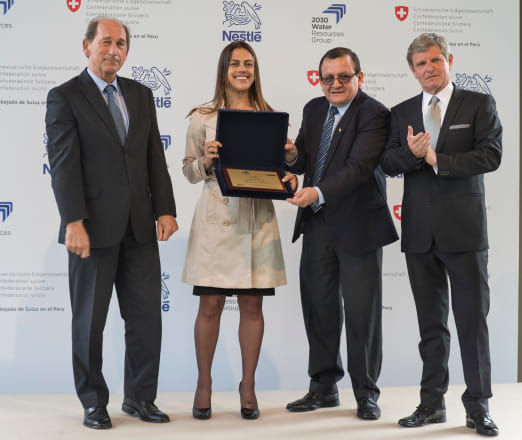
Private Sector
Recognizing the importance of building a diversified base of private sector global partners, 2030 WRG is undertaking a focused effort to engage additional private sector partners. Working with its global network and leveraging partner organizations, 2030 WRG’s global private sector partners also contribute to local programs on the ground.

Cooperation with Civil Society
As a multi-stakeholder initiative, an active partnership with civil society organizations is a basic requirement for 2030 WRG. This is more pronounced considering the political sensitivity of water issues in partner countries. 2030 WRG recognizes that a more structured approach to partnering with civil society is needed.
